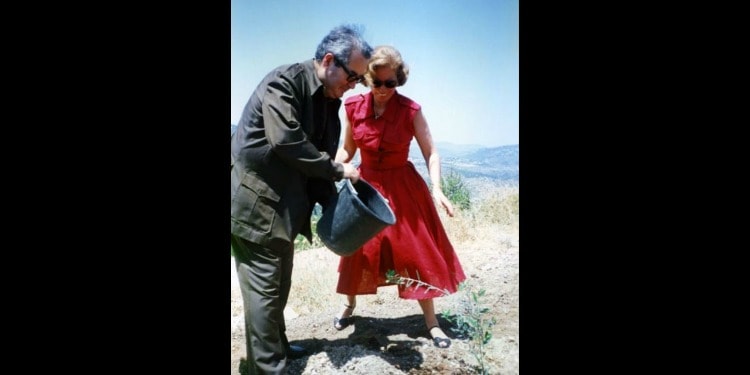They Never Lost Courage
The Fellowship | February 5, 2020

In 1987, an aging Jewish man named Felix Zandman spoke at a ceremony in the Holy Land. It was a ceremony naming a Christian family from Poland, the Puchalskis, as Righteous Gentiles. You see, Jan and Anna Puchalski had saved Felix’s life almost half a century earlier.
While Jan and Anna had already passed away, Felix honored them and their children, saying the family “never lost courage, never. We lost courage. They built our morale up.”
The Nazis Come to Grodno
Before 1941, Felix Zandman lived the life of a normal boy in Poland, going to school and enjoying summers with his friends. But that year, the Nazis finally took over the city of Grodno (then in Poland, today part of Belarus) and herded the city’s Jews into a ghetto. Felix, then a teenager, was one of those Jews.
Two years later, the Nazis began to liquidate the Grodno Ghetto, just as they had with the ghettos in other cities, sending all of the Jews to extermination camps where they were murdered. Luckily, Felix was among a small group of Jews who escaped the ghetto as it was liquidated. Not knowing where to go, the group of six arrived at the home of the Puchalski family, Christians whose children had been friends of Felix before the war began.
Refuge Underground
The Puchalski family’s home was no more than a summer cottage — one they rented from Felix Zandman’s family before the war. In it, Jan and Anna lived a life of poverty with their five children. But when six frightened Jews arrived at their door in February of 1943, the Christian couple knew they had to risk all they had to do what was right.
The cottage had a small cellar, which is where Felix, his uncle Sender (whose wife and children had already been murdered by the Nazis), and four other Jewish refugees first hid. But the cellar wasn’t safe — it was an obvious hiding spot and the Nazis diligently searched such places, executing both those being hidden and anyone who dared hide them.
So the Puchalskis dug a small hole beneath one of the cottage’s two bedrooms. The three oldest daughters who slept there now kept watch, with six hidden Jews living in a whole directly beneath one of their beds. An air duct was dug from the hiding place to a spot hidden by their dog kennel outside. The Pulchaski sisters sneaked food down to the refugees and brought up their waste.
Speaking About Heroism
The Nazis retreated from Grodno as the Soviet army approached. Four of the Jews slipped out during the night and were saved. Felix and his uncle Sender also escaped and made their way to France, where Felix became an engineer and earned his PhD in physics.
And it was because of the testimony of Dr. Felix Zandman, who had once been a frightened young boy, that Jan and Anna Puchalski and their children (who attended the ceremony in Jerusalem, seen in the photo above) were named Righteous Among the Nations. Felix’s testimony included this memory of Anna Puchalski’s heroic and loving nature, which no doubt inspired her husband and children to follow her in doing the right (but dangerous) thing:
She [Anna Puchalski] did something that was absolutely out of the ordinary. You speak about heroism, heroism in a battle — somebody gets wounded, you jump, in two-three minutes you pull him out from the fire, big deal, and you get a medal for that. Big hero, right? Here, they risk not only their lives, or her life, but the lives of the children! And it’s not for five minutes, it was for 17 months! 24 hours a day! Terrible. And they did it.
